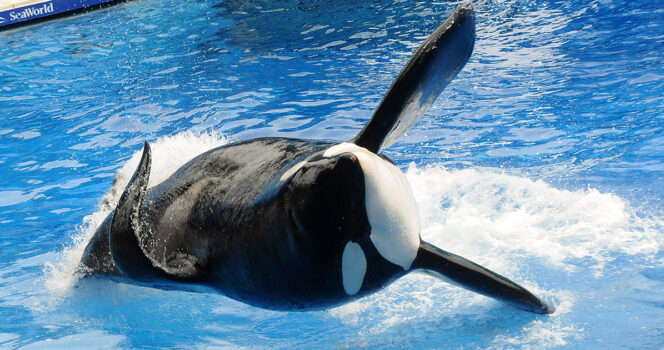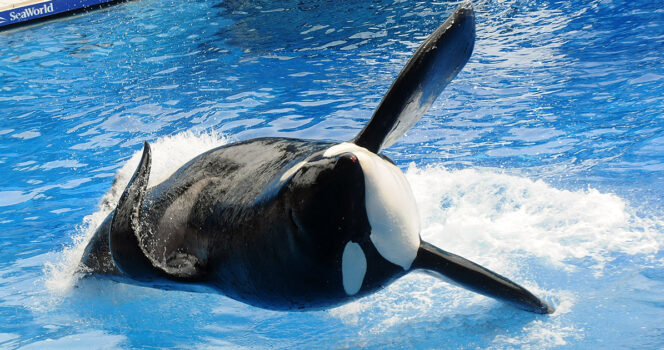
Nature, I’m sure we can all agree, is pretty darn terrifying at times. We humans may consider ourselves the apex species on the planet, but when stripped of our technology and tools, we’re fairly helpless when pitted against the other creatures with whom we share the Earth
Which is why no matter the circumstances the utmost care and caution should be upheld whenever we interact with animals. Sadly, there have been too many instances where people have been severely injured, sometimes killed by accidents and incidents relating to being too close to animals either in captivity or in the wild.
Her work saw her come into contact with a number of marine animals, including killer whales, the largest member of the oceanic dolphin family.
Yet one day, Keltie slipped and fell into a 26-foot pool housing two females and a male named Tilikum, who would go on to garner quite the eerie reputation after his involvement in the deaths of three people.
Yet most cases pale in comparison to the tragic death suffered by the trainer who was ripped apart by a trio of “psychotic” killer whales in 1991.
Keltie Byrne was working part-time at Sealand of the Pacific in Canada, whilst simultaneously studying to become a marine biologist.

Trainer Karen McGee recalled to the Daily Mirror “I just heard her scream my name.
“I threw the life ring out to her. She was trying to grab the ring, but the whale, basically, wouldn’t let her.
“To them, it was a play session, and she was in the water.”
Visitors at the park are also said to have heard Keltie scream: “I don’t want to die.”

Following the student’s death, Sealand closed its doors for good. The trio of orcas were sold to SeaWorld Florida, but that wasn’t the end of the controversy surrounding Tilikum.
In 1999, the body of Daniel Dukes was found in the killer whale’s tank, though SeaWorld claimed Dukes had trespassed in the park after having visited as a guest the day prior.
Tilikum would then go on to kill senior orca trainer Dawn Brancheau during a show in front of a packed crowed in 2010. Brancheau’s death garnered worldwide coverage, ultimately forcing SeaWorld to end its orca breeding program and stop its shows for good.
Tilikum eventually died after contracting a bacterial infection in 2017.